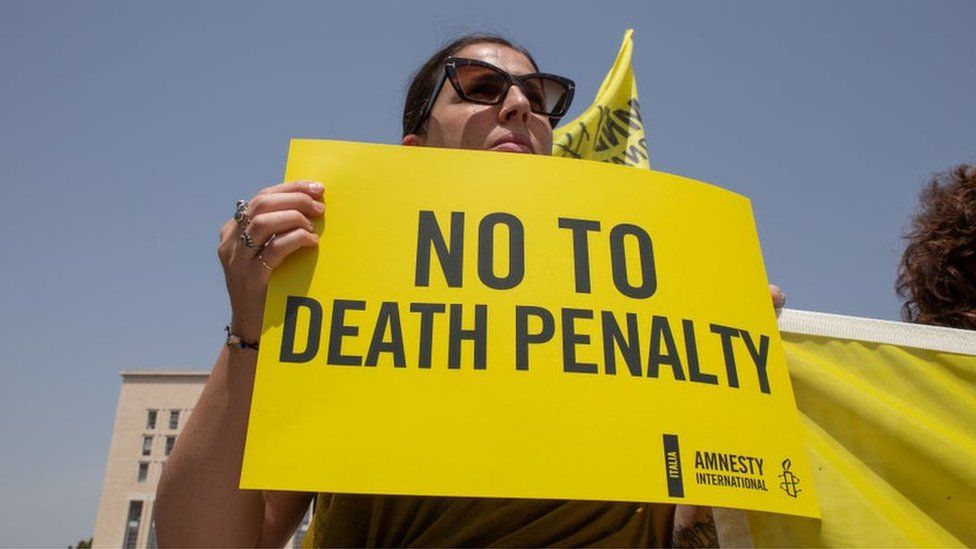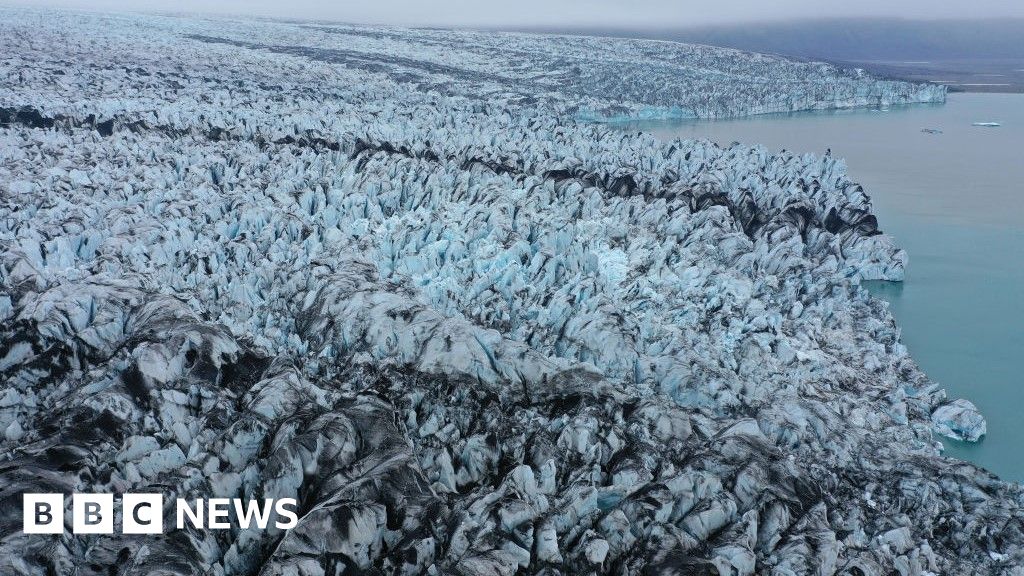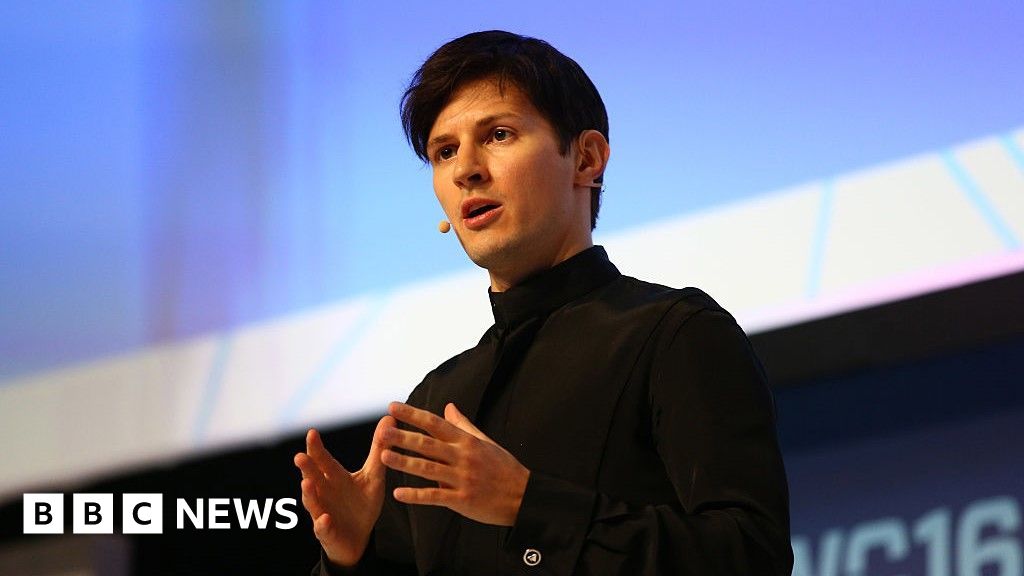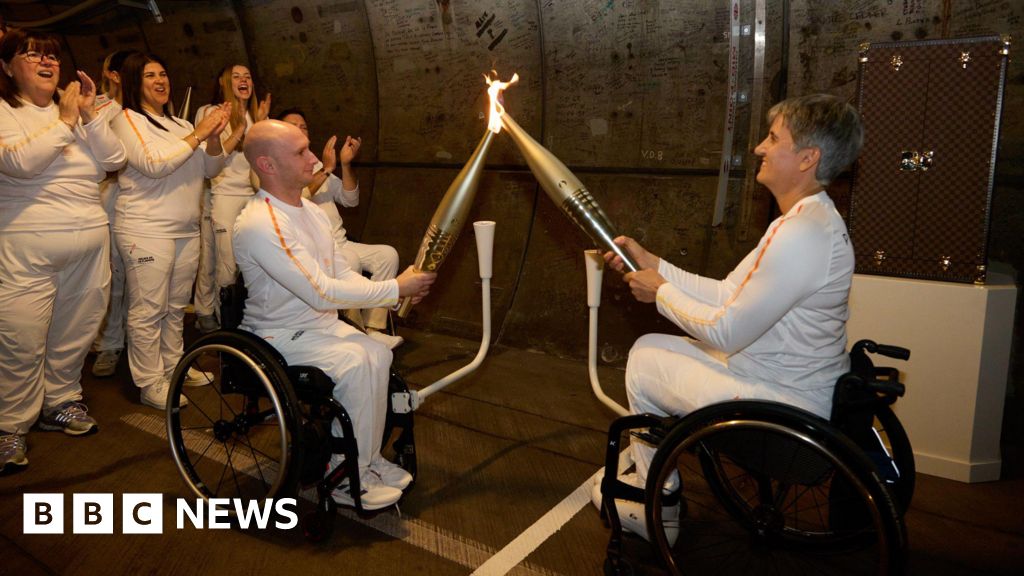ARTICLE AD BOX
 Image source, Getty Images
Image source, Getty Images
A convicted murderer in the US is set to become the first person in the world to be executed using nitrogen gas.
The number of executions is rising globally, despite many countries abolishing the use of capital punishment.
How many countries use the death penalty?
- 55 countries had the death penalty
- Nine of these countries had the death penalty only for the most serious crimes, such as multiple killing or war crimes
- 23 countries had the death penalty, but had not used it for 10 years
How many people are executed every year?
Amnesty International data is a combination of official figures, media reports and information passed on from individuals sentenced to death and their families and representatives.
China does not release information about its use of the death penalty.
Excluding China, Amnesty International recorded 883 executions worldwide in 2022.
This is 53% higher than the 579 people executed in 2021, and is the highest number of executions since 2017.
However, it is much lower than the figures for 1988, 1989 or 2015, when more than 1,500 people were executed in a single year.
Amnesty International says at least 2,016 death sentences were imposed in 2022, across 52 countries.
In 2021, 56 countries imposed at least 2,052 death sentences.
Many prisoners spend years or even decades on death row before their execution is carried out.
Which countries use the death penalty most?
Twenty countries executed people in 2022, compared with 18 in 2021.
Amnesty International believes that China uses the death penalty more than any other country. It is thought to execute thousands of people a year, but this cannot be confirmed.
Apart from China, the countries which executed the most people were Iran, Saudi Arabia, Egypt and the US.
How has the number of executions carried out in different countries changed?
Amnesty International highlights 11 countries in the world which persistently execute people every year.
These include China, Egypt, Iran, Iraq, Saudi Arabia, the US, Vietnam and Yemen.
It also believes that North Korea is "likely to be using the death penalty at a sustained rate", but cannot independently verify this.
Saudi Arabia's execution figure in 2022 was the highest for 30 years.
Five countries - Bahrain, Comoros, Laos, Niger and South Korea - sentenced people to death in 2022, having not used the death penalty for several years.
However, the number of executions in the US has fallen since the 1999 peak.
How many people are executed for drug offences?
Amnesty International says there were 325 executions for drug offences worldwide in 2022 including:
- 255 in Iran
- 57 in Saudi Arabia
- 11 in Singapore
In 2023, Singapore executed the first woman for almost 20 years. Saridewi Djaman was convicted of trafficking heroin in 2018.
How many countries have abolished the death penalty?
The death penalty is not used at all in 112 countries, compared with 48 in 1991.
Six countries abolished the death penalty either fully, or partially, in 2022.
Four - Kazakhstan, Papua New Guinea, Sierra Leone and the Central African Republic - scrapped it completely.
Equatorial Guinea and Zambia said it would only be used for the most serious crimes.
In April 2023, Malaysia's parliament also voted to remove the mandatory death penalty for 11 serious crimes, including murder and terrorism.
Ghana's parliament voted to abolish the death penalty altogether in July 2023.
How do countries around the world carry out the death penalty?
Saudi Arabia was the only country to list beheading as the method of execution in 2022.
Other methods included hanging, lethal injection and death by shooting.
Image source, Getty Images
The US state of Alabama is due to execute a convicted murderer called Kenneth Smith using nitrogen gas.
He will be the first person to be executed using this method. Mr Smith's lawyers called the untested method a "cruel and unusual" punishment.
Alabama and two other US states approved the use of nitrogen because the drugs which are more commonly used in lethal injections have become more difficult to find.
Drug shortages have contributed to the fall in the use of the death penalty across the US.

 7 months ago
50
7 months ago
50








 English (US)
English (US)